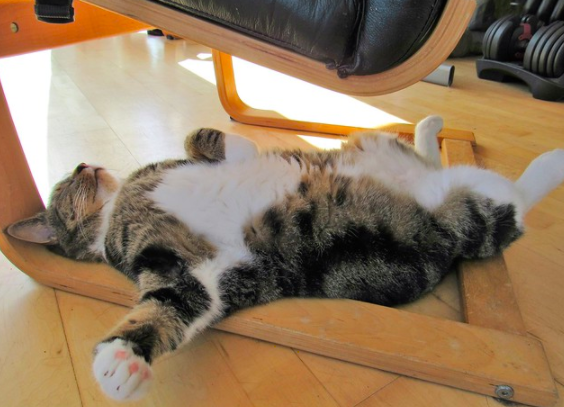There’s no better teacher in life than a cat.
Well, maybe apart from the greats like Buddha and Dalai Lama, to name a couple.
Cats have been creatures who brighten up our day and send our hearts into a tizzy when they purr and meow. They’ve done this soothing for centuries. However, they can teach us many things about life too.
For example, when there’s a problem to face, we can try different heights to get a new perspective. Sometimes, lying on a floor or climbing up somewhere can help us get a better understanding of a problem (and find a much-needed solution). In some cases, being on the same level as a problem can make it all seem more difficult than it is.
In another instance, cats teach us that we can survive on water, food, connection, and shelter. We don’t need that flashy car, a trip to Bali, or that luxury wardrobe. Okay, they look nice, feel good, and we’ve been conditioned by society to “need” them; however, at the end of the day, cats are just as happy with a cardboard box to sit in.
Third, leave negativity in one place like a cat would go to the bathroom. Set a place and time to feel your feelings, to feel upset and angry. Validate it all through swearing, kicking a punching bag, or listening to loud music. As humans, we have to embrace all emotions to be healthy. Our current climate of toxic positivity is making bad feelings feel much worse than they should by repressing bad feelings to suit the belief that happy is better, and happiness should be pursued as much as possible. With all this said, have a limit and put a cap on how much time you’re going to spend wallowing away. At some point, come up for some gratitude air.
Remember that like stinky cat odor, negativity can be sensed by others, and it doesn’t make for good company in social situations.
Cats are happy to do nothing but sleep or stare out windows with a bored expression. We should take note of this and do this more often. We live in a hyper-aroused society. For one thing, we’re glued to screens. Every few seconds we’re checking emails, responding to a text, chatting on the phone, watching TV, scrolling social media, posting to social media, and listening to music or a podcast. That’s if you’re not on a screen looking at word documents, spreadsheets, and other work-related content, too.
Our human brains have not evolved to have this level of stimulation every hour of every day. No wonder we’re a stressed and depressed population; we’re absorbing so much information at such a rapid pace but not giving ourselves enough time to properly absorb what’s important. In fact, in some cases, it’s used to numb or distract ourselves from what’s going on in our reality.
We, in the west, put too much emphasis on doing, on being productive. If you’re not working, earning money, and have some kind of status, you’re made to feel worthless. This mentality is causing stress and risking our health (and the health of future generations, too). The effects of stress on genes are multigenerational. Good diets, exercise, and sound sleep alone can’t undo generational genetic damage caused by chronic stress.
It’s ironic we’re wearing ourselves out when most jobs in the west are automated and computerized, with a few exceptions. Even those exceptions will be tossed out the window at some point in favor of robots and more automation. This will allow us to be more like a cat and put some time aside each day to engage in nothing but boredom.
Cats don’t need other cats or constant connection, so we shouldn’t stigmatize our introvertedness. There’s a saying that cats are like introverts—it couldn’t be more true. Besides, what happens when cats who are not from the same litter or didn’t grow up together are introduced to each other? They fight, or it takes a long time to warm up to each other. Cats aren’t like dogs who have the pack mentality and therefore need other dogs (or people) around.
What’s wrong with liking your own company or the company of one good friend? Why is introversion a bad thing? Cats aren’t a bad thing. Neither are dogs (or extroverts). Why are introverts still seen as awkward?
Western society has this (historical) grandiose obsession with extroversion and it’s ruining introverts’ self-confidence, causing mental health challenges for them. Just like people who can’t contribute to the economy due to chronic health conditions or learning disabilities, introverts are looked down upon because they don’t “fit in” with what Western society deems is acceptable behavior. Behavior that has a historical basis to it, when being extremely personable was a necessity to get things done (and profits made). In an era of technology and the internet, we don’t require the need for extroversion as much; it’s the introvert who is having a golden age now.
It’s time we begin to live as a cat would—or at least try to embrace a cat-like life. We’ll be happier, healthier, and have better connections with ourselves and others.
~












Read 0 comments and reply